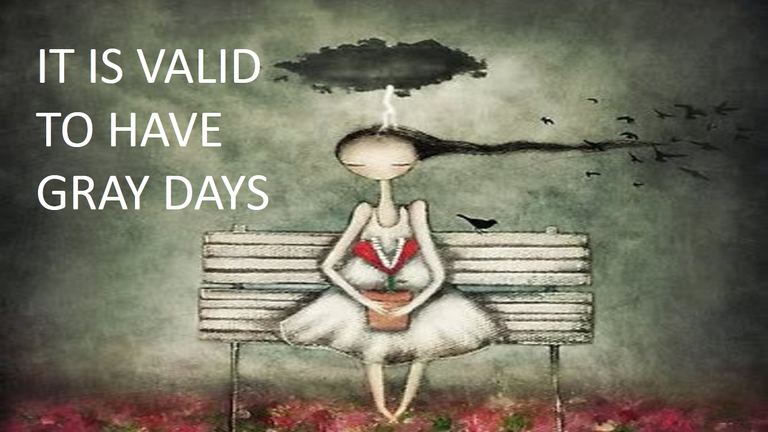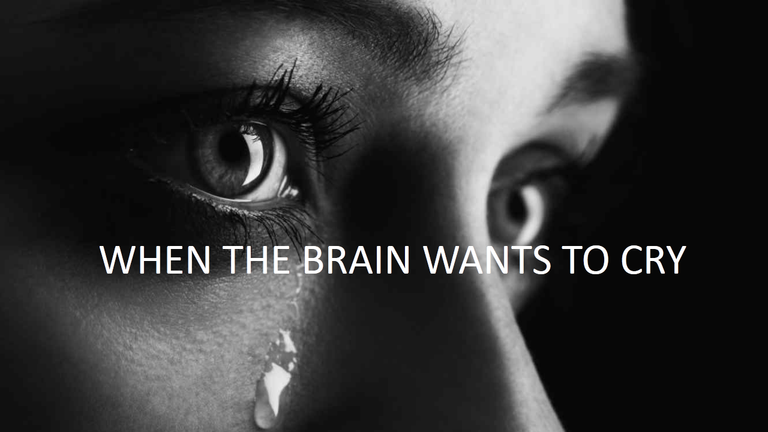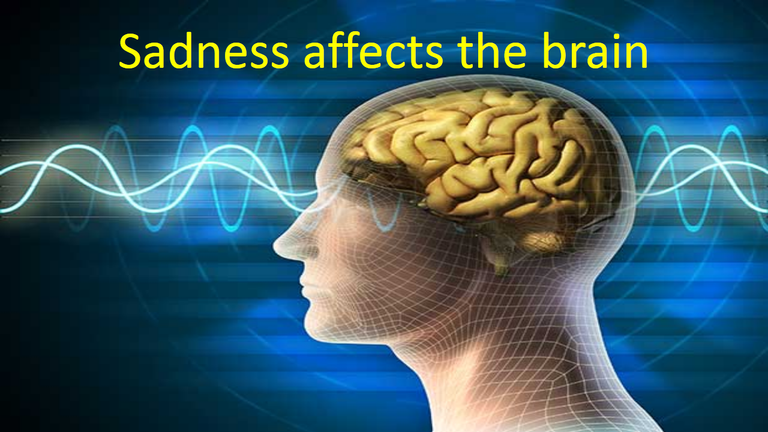
But how long can those gray days last?
From my own experience, through the saddest story of my life, those gray days turned into years of great sadness. Until recently I was able to realize that our mind body and soul go through several transformations that take us away from reality to be part of our daily life. I was wondering: again am I sad? Another month? When will the day be that the sadness will go? It's like being sick with a cold you take a flu shot and you're ready cures is like sadness is a disease in which each patient must treat himself.
WHEN SORROW INVADE OUR BRAIN by the psychologist: Valeria Sabater
Sadness is one of the most basic emotions of the human being. It is that sensation that overwhelms us for infinite reasons, that turns us off and forces us to look towards our own introspection in search of reasons and explanations.
"Happiness is healthy for the body, but it is grief that develops the forces of the spirit."
-Marcel Proust-
But what happens in our brain at those times? Why do we feel that way when sadness settles like a spider's web in it?
According to experts in psychiatry and psychology, the brain is more prepared to face this emotion than any other. If we realize, it is precisely an entristrecido face that more empathy provokes, we recognize it immediately and we tend in some way to support those people who go through that sensation.
Sadness is understood and has its own language. In addition, tears also act as a defense and relief mechanism, it is a way to release the tension that that particular emotion causes in our brain. But let's see what else factors determine it:
The organism and the brain require more oxygen and more glucose during these emotional processes. He feels stressed and collapsed with sensations and emotions, hence he needs more "fuel" to be able to function ... a state that, given that energy expenditure, causes us more fatigue.
Sadness runs out and when we are very tired we can not even drop the tears. Nobody can cry during a whole day, it is an act that can be done in small episodes, but not in a continuous way.
Loss of sweet taste
It is a curious fact, but when we go through these processes of sadness the brain stops receiving in the same intensity the sensation of sweetness. It decreases the number of receptors in the language and people do not fully grasp the flavor, hence we tend to eat more, what we look for more sweet things because we have not just found the same pleasure as before.
Low level of serotonin
When we live these periods of marked sadness, the brain stops producing serotonin at a level that is considered adequate. And a deficit in this neurotransmitter means that the dreaded depressions, compulsive obsessions and even small violent attacks can appear in the medium or long term. The brain is a complex machine that, in situations of stress, anxiety, fears ... etc, alters its production of neurotransmitters, and this always affects our behavior.
Learning from sadness
Sadness allows us to learn from what we have lived, and that is the main value. The brain is a magnificent organ that in the long term is able to self-regulate itself. It also has several defense mechanisms by which it protects us, keeping in our memories memories through which we can learn, situations to which we can anchor ourselves for help us get out of the tides of sadness.
The power to cry and know how to look for support in our outside are, without doubt, adequate means to overcome these common states of life.
"Sadness is no more than a fence between two gardens."
-Khalil Gibran-
all images are courtesy free space
Mind information is lamenteesmaravillosa.com


